Does Catalonia feel like Spain?
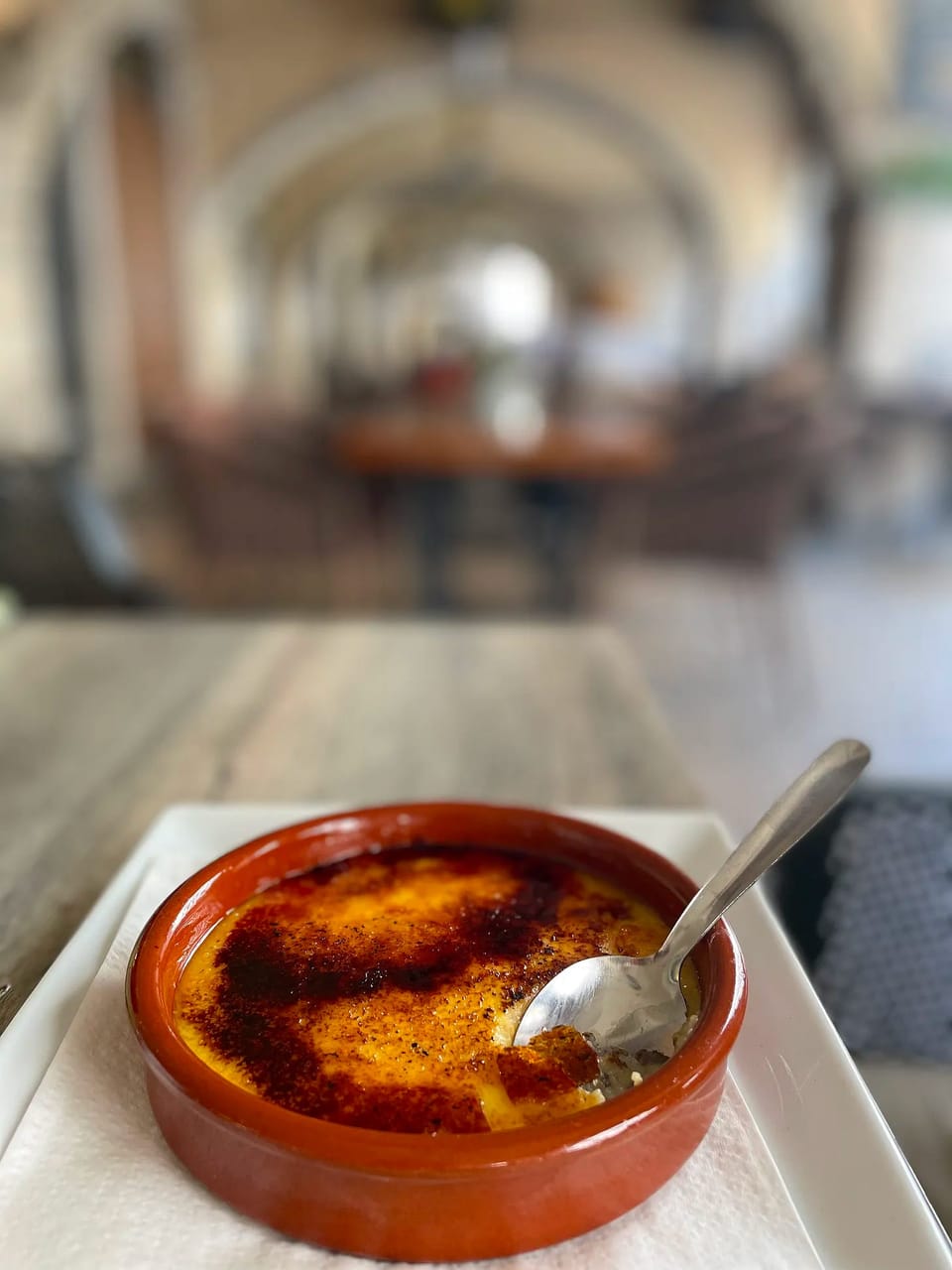
Si quieres, puedes leer la version en español.
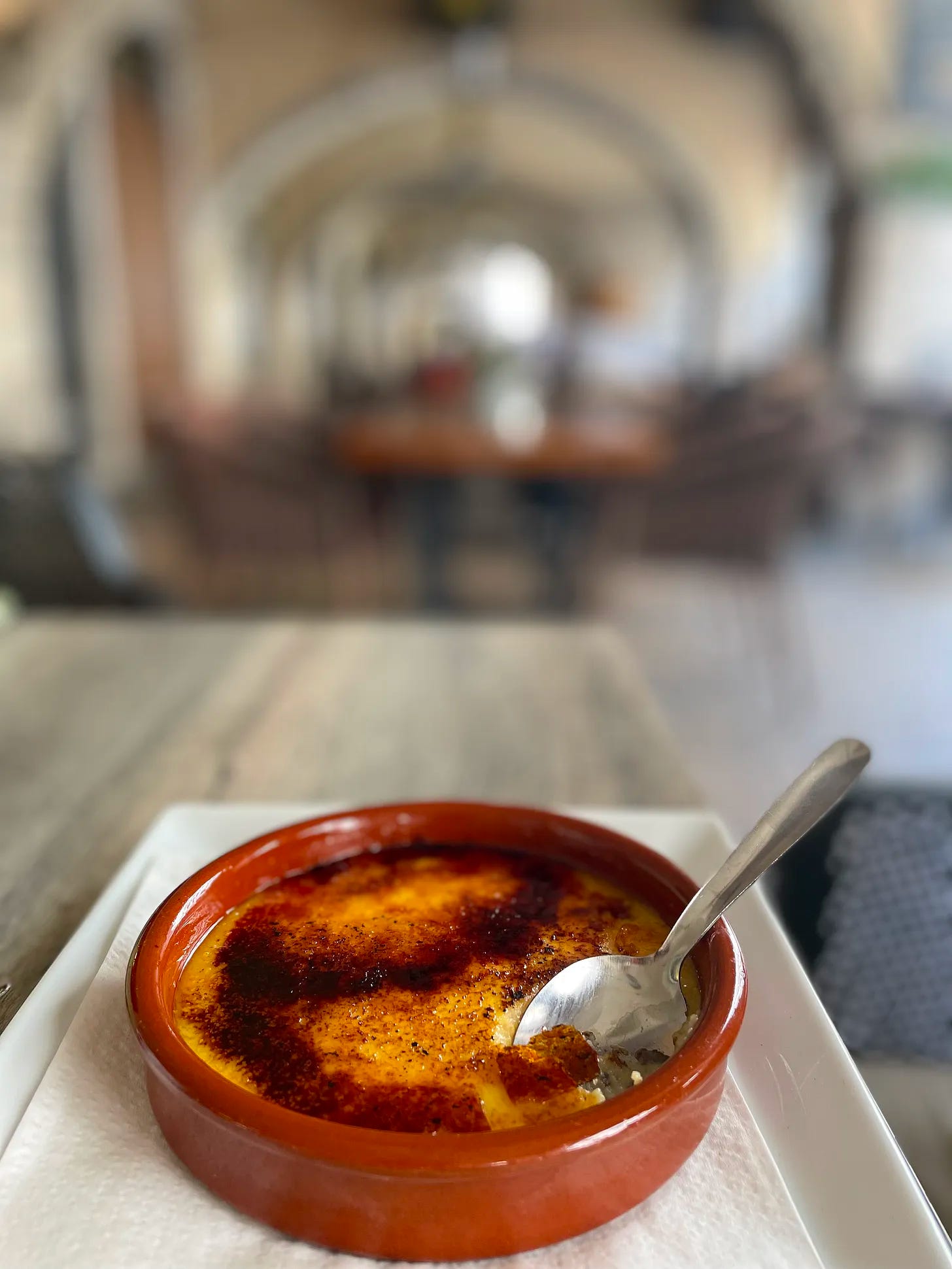
The dismantling of my belief system started with the crackling of caramelized sugar. Then came the creamy custard with the tiniest curdles that showed its homemade freshness. The velvety texture almost had me, but it wasn’t until the notes of lemon zest and cinnamon hit me that I understood Catalonian separatists.
As a guiri (white-ass foreigner in Spain), I shouldn’t take sides in the Catalonia separatist debate, but here’s a Flemish quote my father taught me when I was six.
“Hoe onwettiger, hoe prettiger.”
Which translates to “the more illegal, the more fun.” In Spanish you can say “Lo prohibido gusta más,” and in Catalan you can say “Com més prohibit, més gustós.”
That quote has played a significant role in my life, so here we go.
I’m a Belgian and Canadian citizen born in Chile and living in Spain. Since I can’t call one place home and I despise nationalist and populist rhetoric, my views on separatists are often clear, but not with Catalonia.
It’s difficult to have a clear stance because there isn’t just one party advocating for independence.
In Catalonia, there are left-wing separatist parties such as the Republican Left of Catalonia (ERC) and the Popular Unity Candidacy (CUP), as well as center-right separatist parties such as the Catalan European Democratic Party (PDeCAT).
In terms of specific parties, the CUP is often described as a leftist and anti-capitalist party. Similarly, the ERC has historically positioned itself as a left-wing party, and its platform includes proposals such as a universal basic income and a reduction in working hours.
The PDeCAT, on the other hand, is a center-right party, and its platform is generally focused on economic liberalism and promoting Catalonia’s interests within the European Union.
As you can see, it’s not as simple as taking “a side.” There are sides within the sides, and by showing you part of Catalonia's culture, I’ll eventually reveal my position.
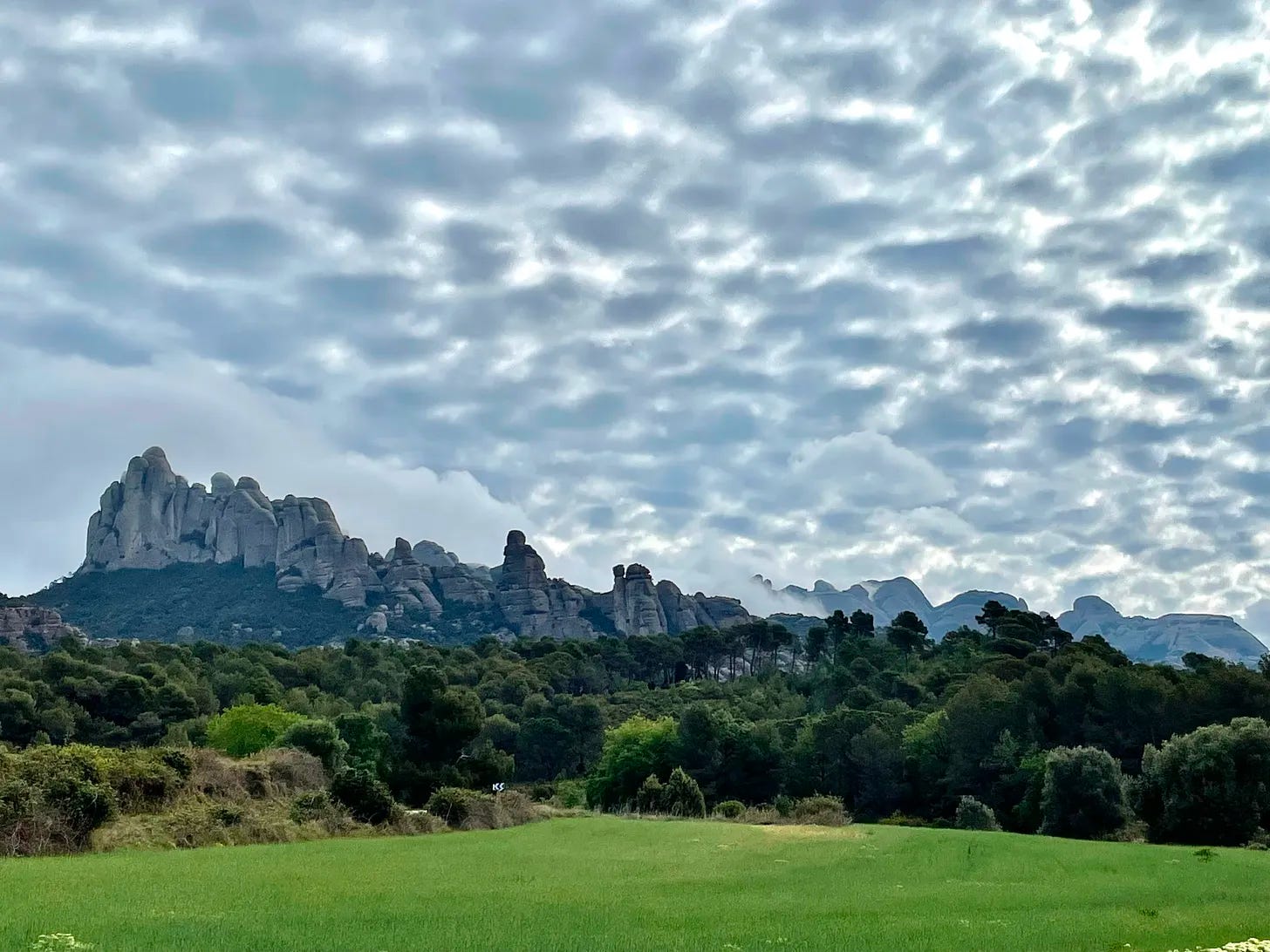
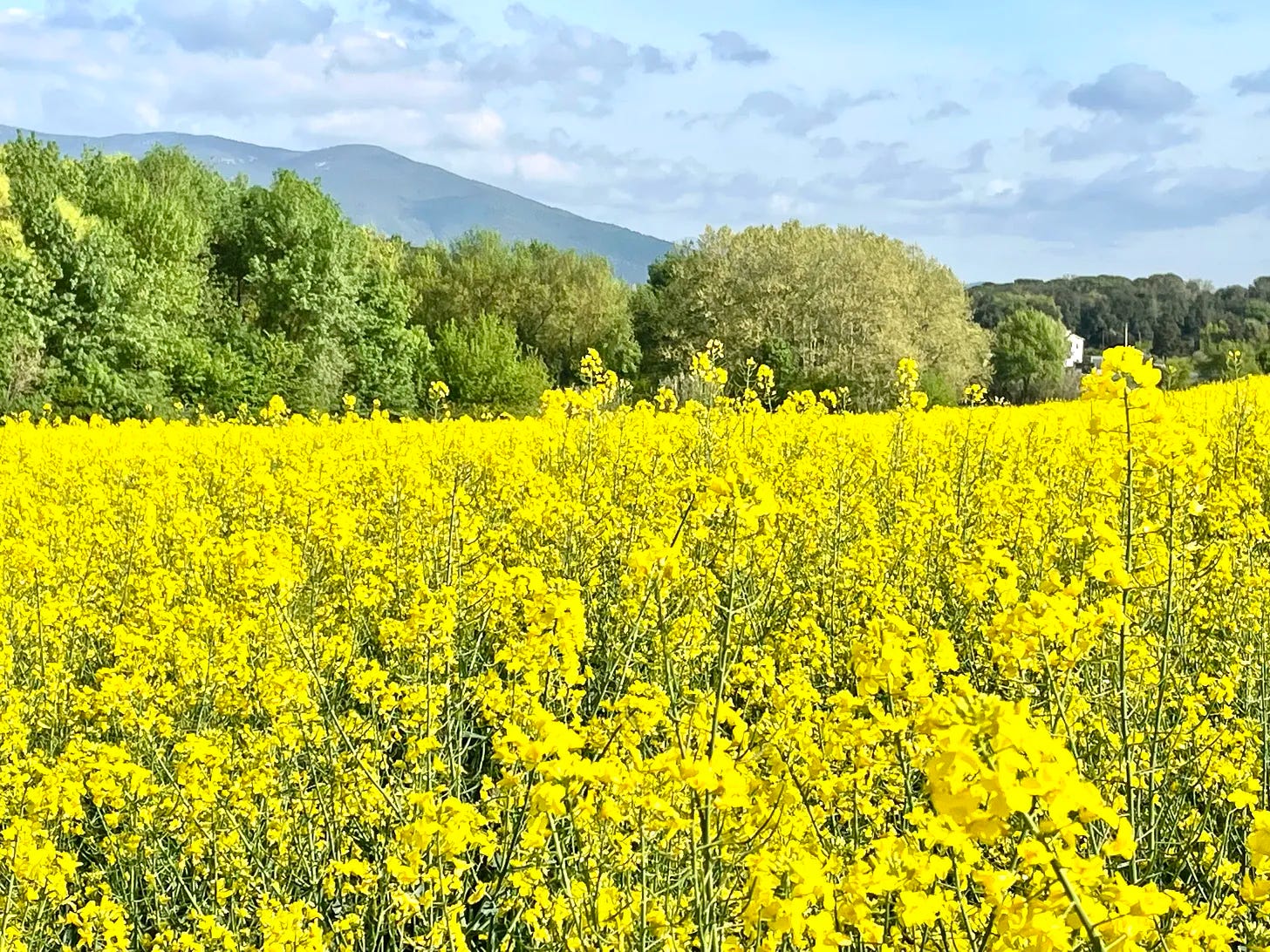
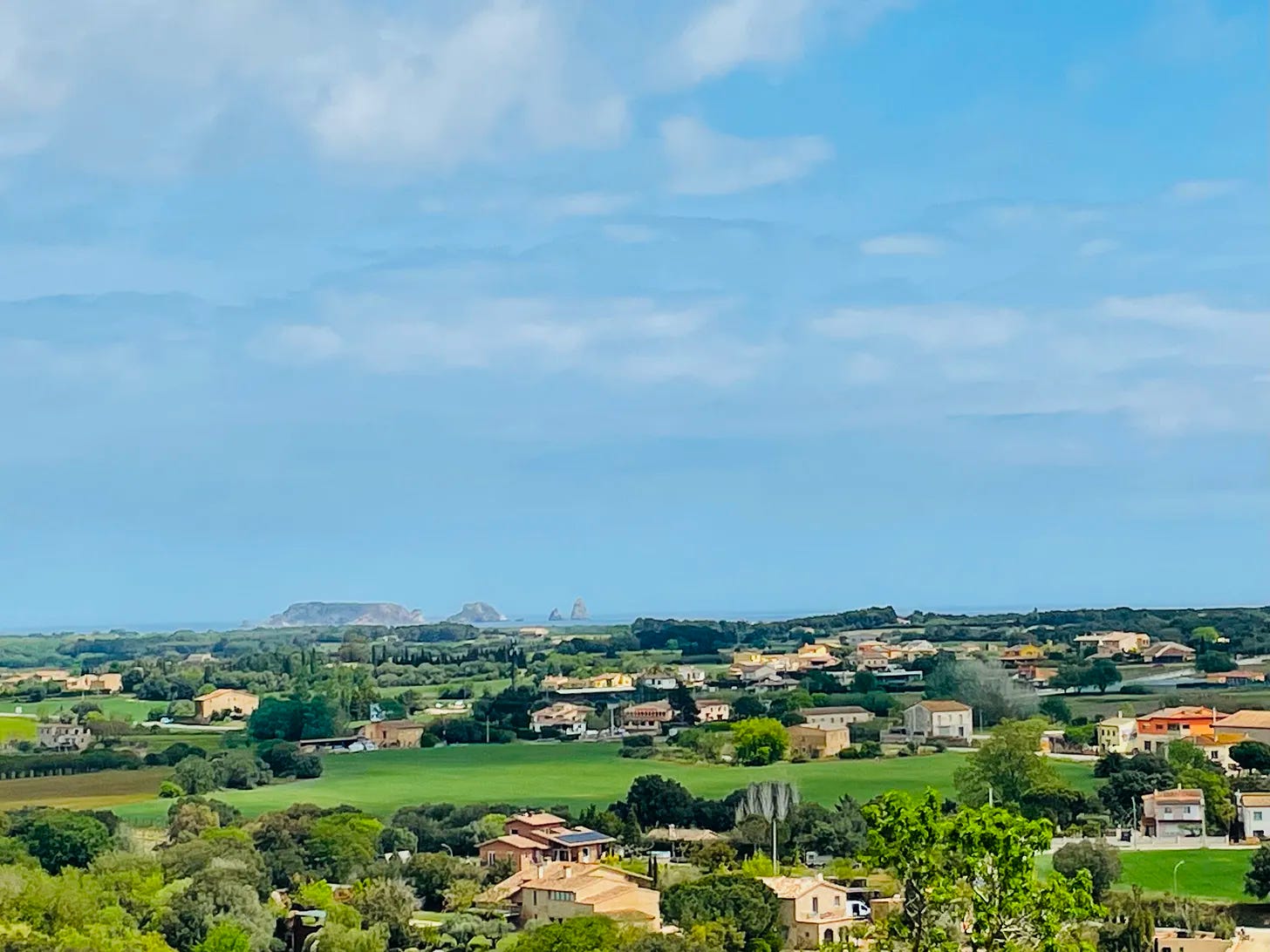
Catalonia is stunning, but that’s not why many Catalonians want to separate.
Reasons for Catalonia to separate from Spain:
- Economic grievances: Some people in Catalonia argue the region contributes more to the Spanish economy than it receives in return.
- Political issues: Some people in Catalonia feel their political rights and freedoms are restricted within the Spanish state. All the imprisoned Catalan independence leaders are just one example.
- Suppression of Catalan identity: During the Franco dictatorship (1939-1975), the Catalan culture was actively suppressed, and Catalan institutions were dismantled. Some people in Catalonia still sense this historical suppression today.
- Linguistic differences: Franco, the ferocious, fanatical fascist, suppressed the Catalan language.
Keep in mind that six of the seventeen autonomous communities in Spain have other co-official languages, and they also faced severe restrictions and censorship.
See the potential domino effect?
Alright, so let’s look at the other stance.
Reasons for Catalonia to remain part of Spain
- Legal and constitutional issues: Some people argue that Catalonia has no legal or constitutional right to secede from the country.
- Economic stability: Whereas some stats point to Catalonia being better off without Spain, others point to economic instability and uncertainty, particularly in areas such as trade, investment, and financial services.
“Facts are stubborn things, but statistics are pliable.” - Mark Twain
- Shared history and culture: Some point to Catalonia and Spain sharing a long and rich history and culture.
Both sides of the separatist debate point to culture, and since we find a region’s or nation’s quintessential culture in small cities and towns, not cosmopolitan capitals, I’m keeping Barcelona out of this.
Girona
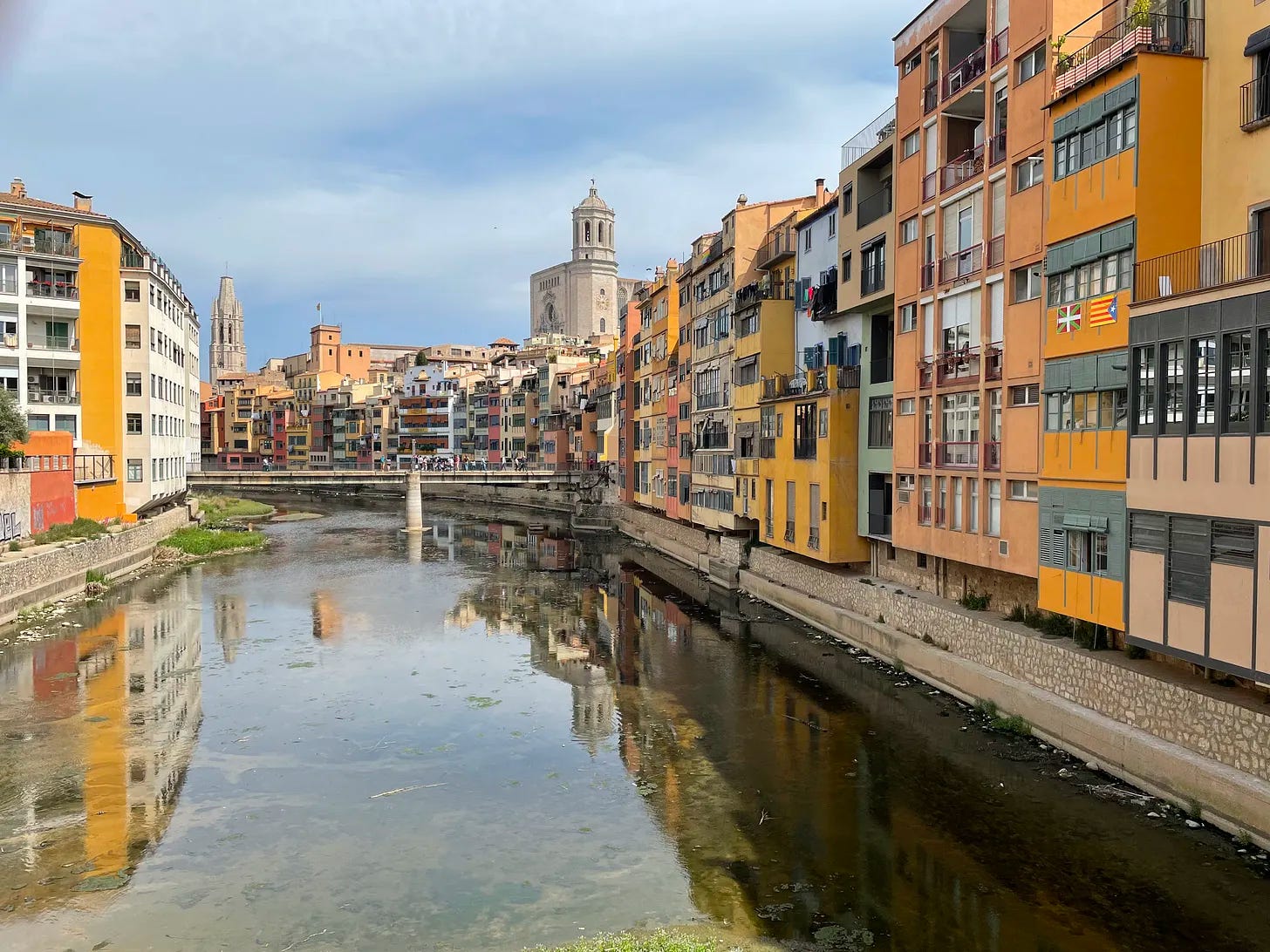
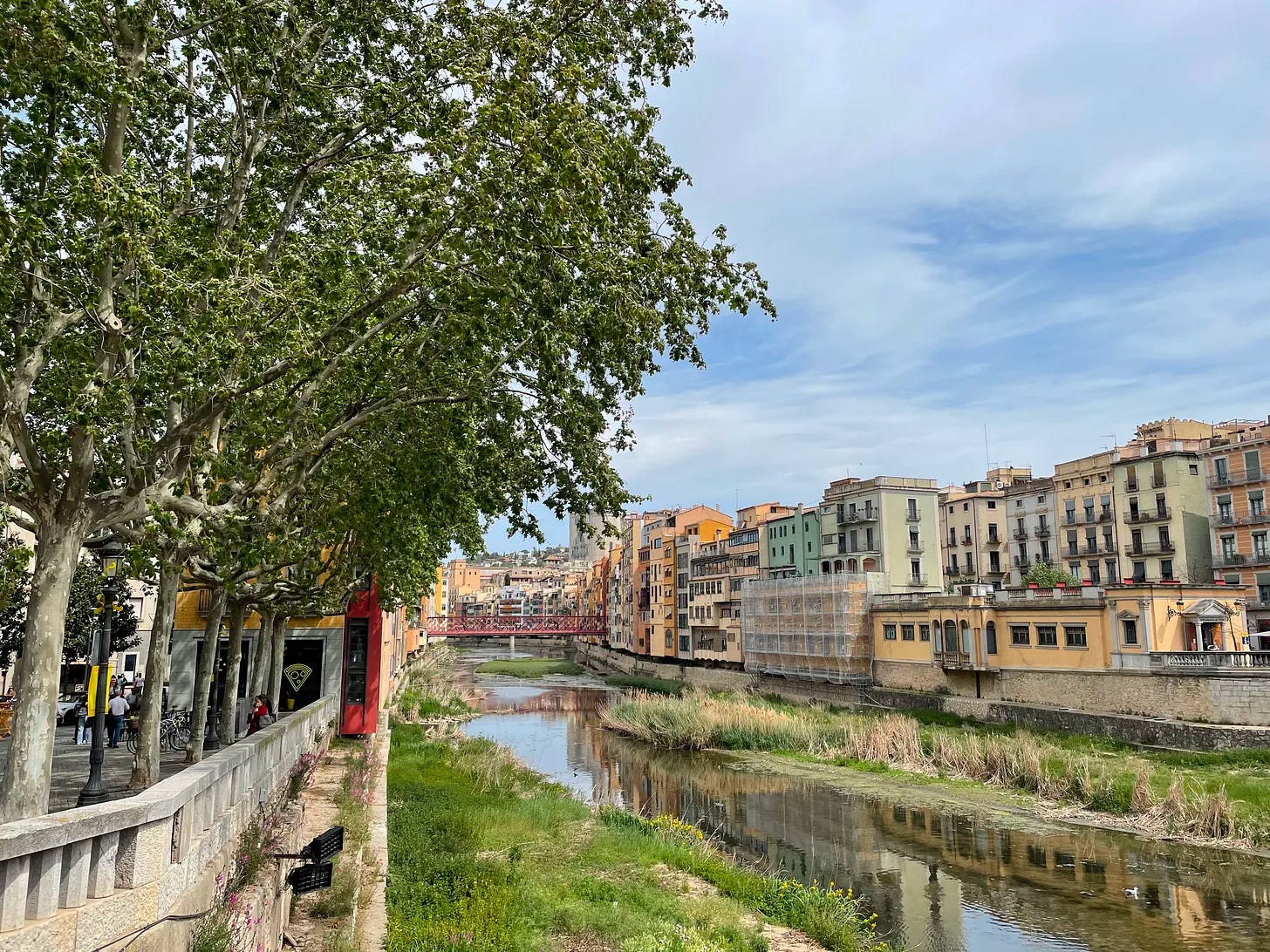
The city of rivers, world-renowned cuisine, cyclists in spandex, and historical buildings from Romans, Visigoths, and Moores that most people now call “That Game of Thrones Buildings.”
And whereas this exact description can be used for several other towns and cities in Spain, such as Sevilla and Toledo, there’s a breath of calmness that breezes through the city I haven’t experienced in other parts of Spain.
Another reason to visit Girona is for its culinary culture.
One of the most well-known restaurants is El Celler de Can Roca by Roca Brothers: Joan, the meticulous one; Josep, the wine wizard; and Jordi, the sweet sorcerer. Their mother nurtured their passion and passed down secret recipes, and the sons transformed the humble family restaurant into a culinary temple regarded as “the best restaurant in the world.”
And for those of us who can’t book thousand-dollar meals one year in advance, we can go to their restaurant called Normal.
We “normal” people can afford restaurants all over the city. Some of them, like La Fábrica, remind us that Girona is not resistant to the globalization of food tastes and cycling tourists paying to eat what they can get at home.
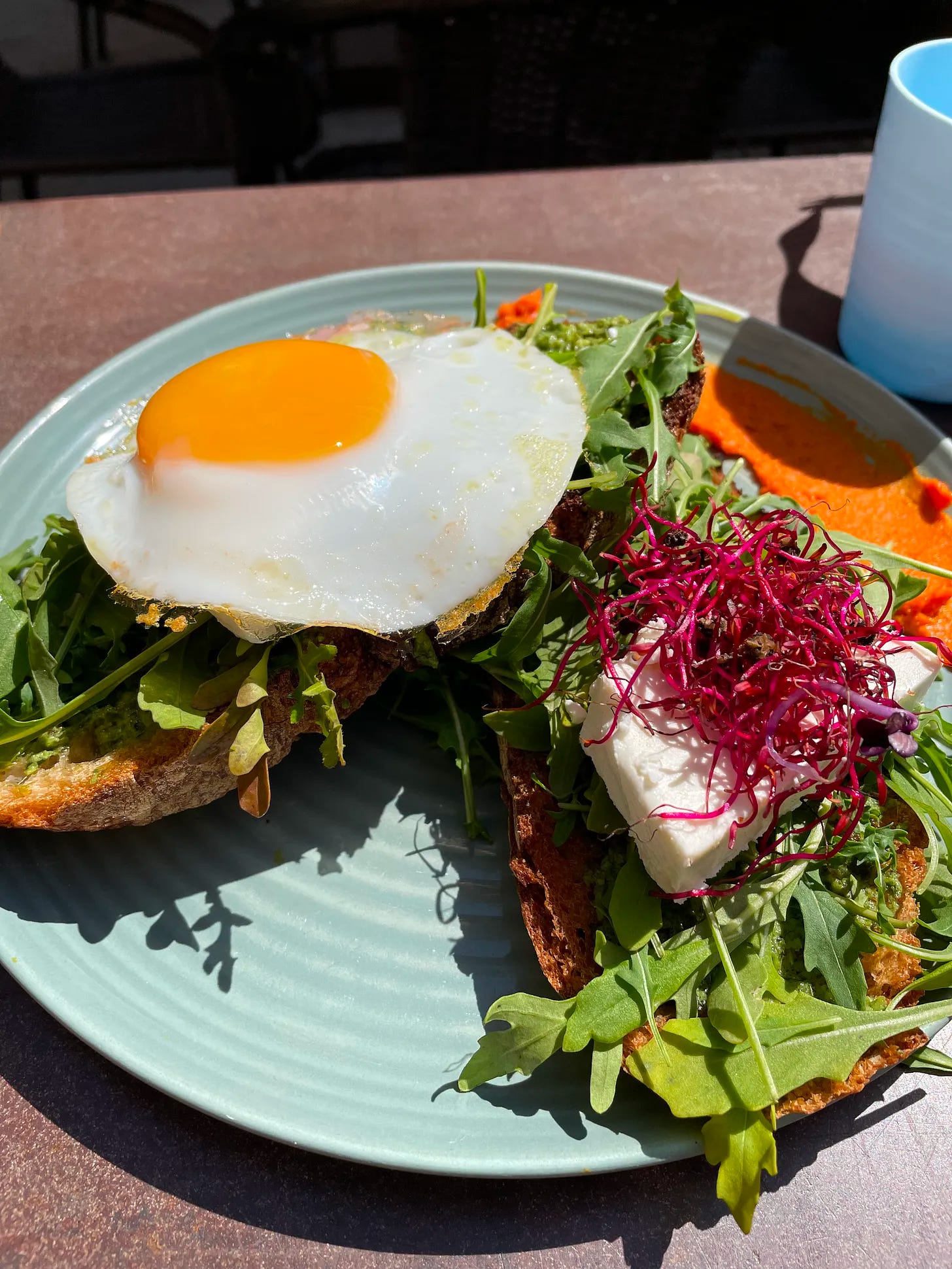
On the other hand, some restaurants like Café le Bistrot only have a Catalan menu, although they are in one of the most touristy parts of town. And don’t let the scathing reviews from tourists who don’t like learning other languages or using Google Translate dissuade you. The Catalonian food is incredible here.
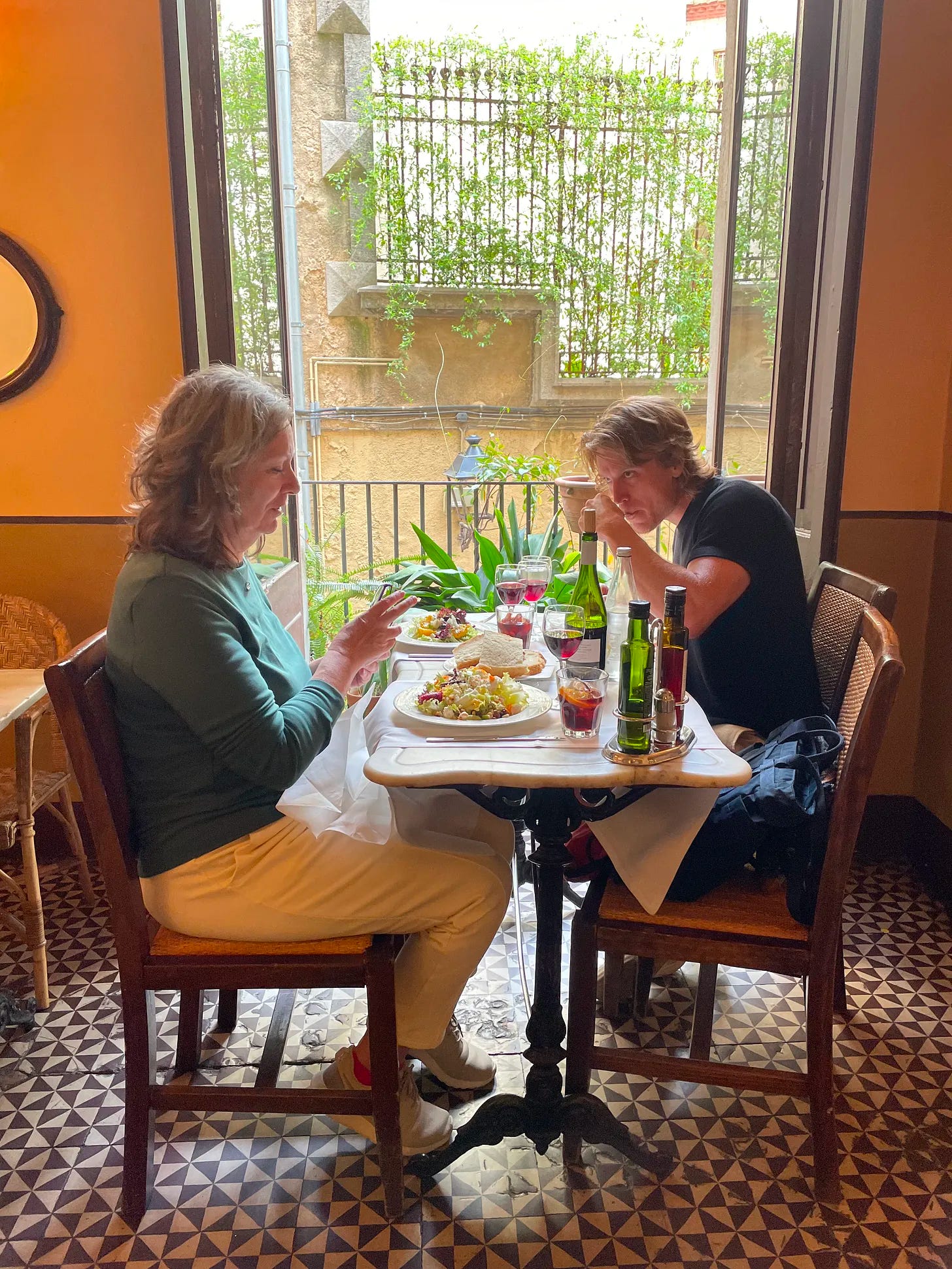
I understood most of the things on the menu because some words were similar to Spanish and others to French. And when I didn’t know a word, they happily translated it for me because I showed I was genially interested in their language and, even more so, their food.
Besalú, Monells, Peratallada, and Pals
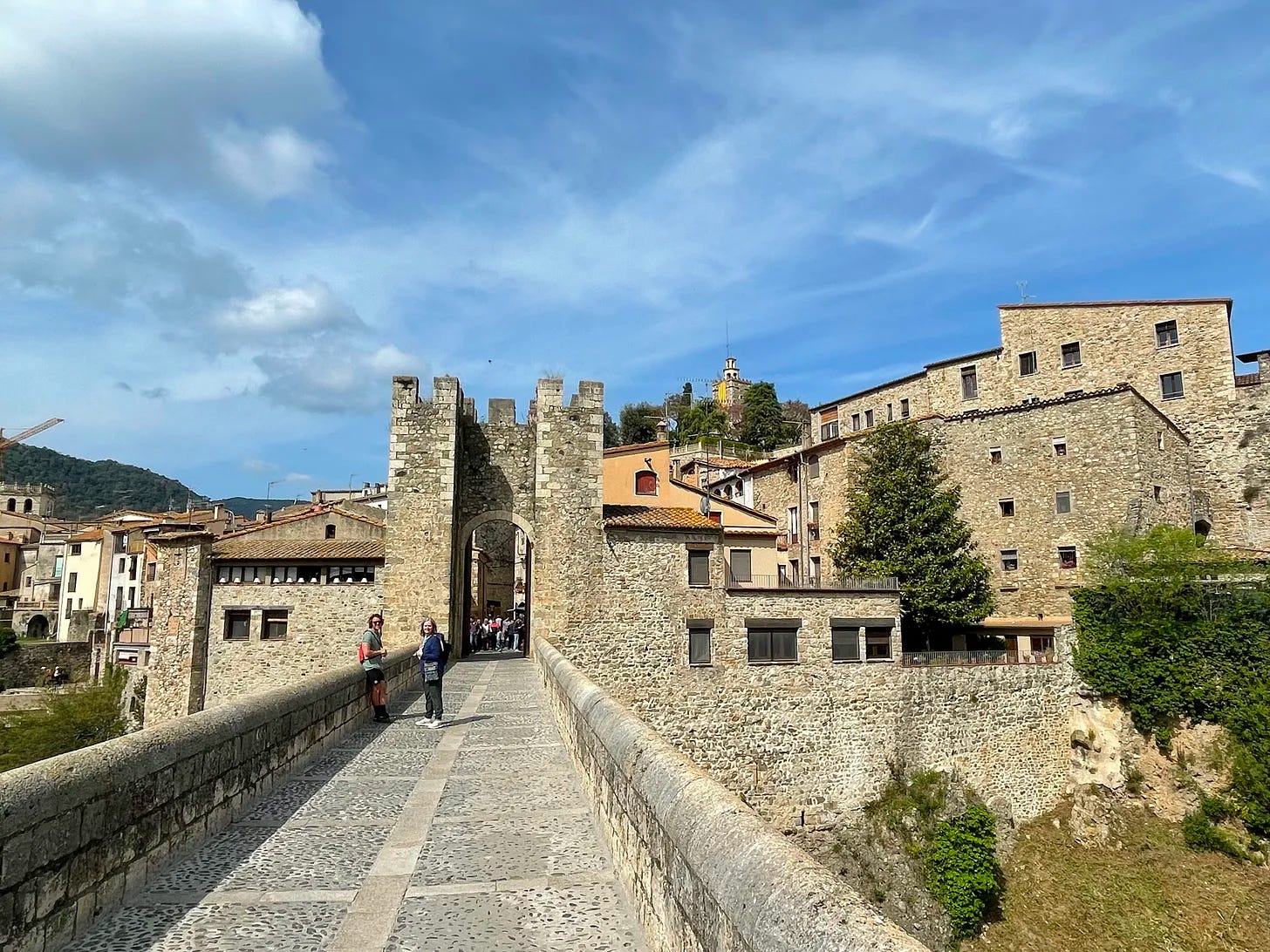
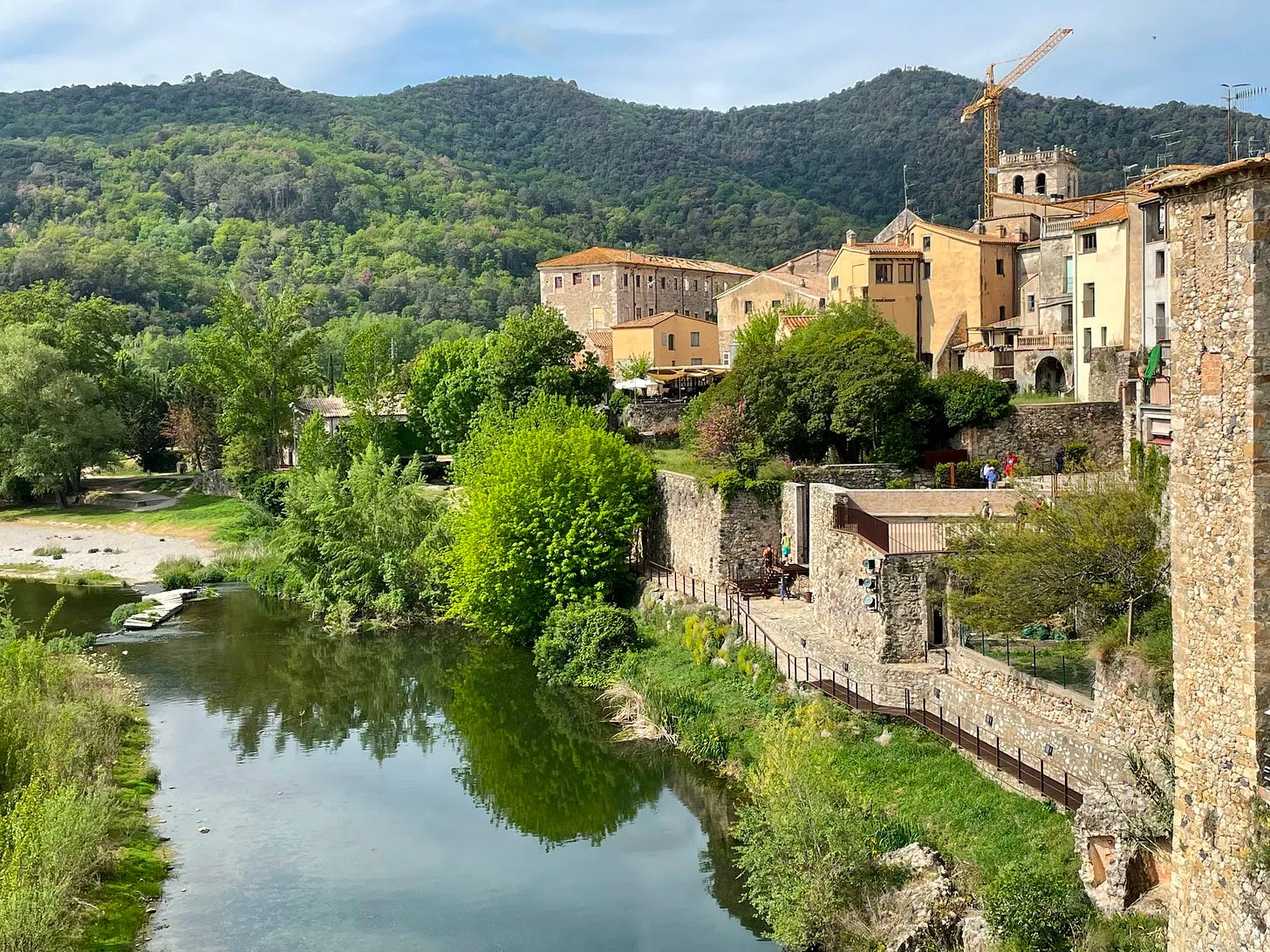
30 KM North of Girona sits Besalú, the 12th Middle Age capital of the county of Besalú, whose territory was roughly the same size as the current comarca of Garrotxa but sometimes extended as far as Corbières, Aude, in France.
The town was too loaded with tourists to get a sense of the current culture, but walking through the narrow cobblestone streets, I encountered a gothic church and well-preserved medieval buildings with their facades adorned by intricate stonework and wooden balconies.
Even though you can find Romanesque Architecture and Gothic elements throughout Spain, the iconic bridge's arched structure and fortified towers resemble southern France. With the green, roaming mountains and flower-filled countryside, you feel further away from Spain’s arid interior than you are.
Much of the same can be said for the towns of Monells, Peratallada, Pals, and the surrounding area.
Cadaqués
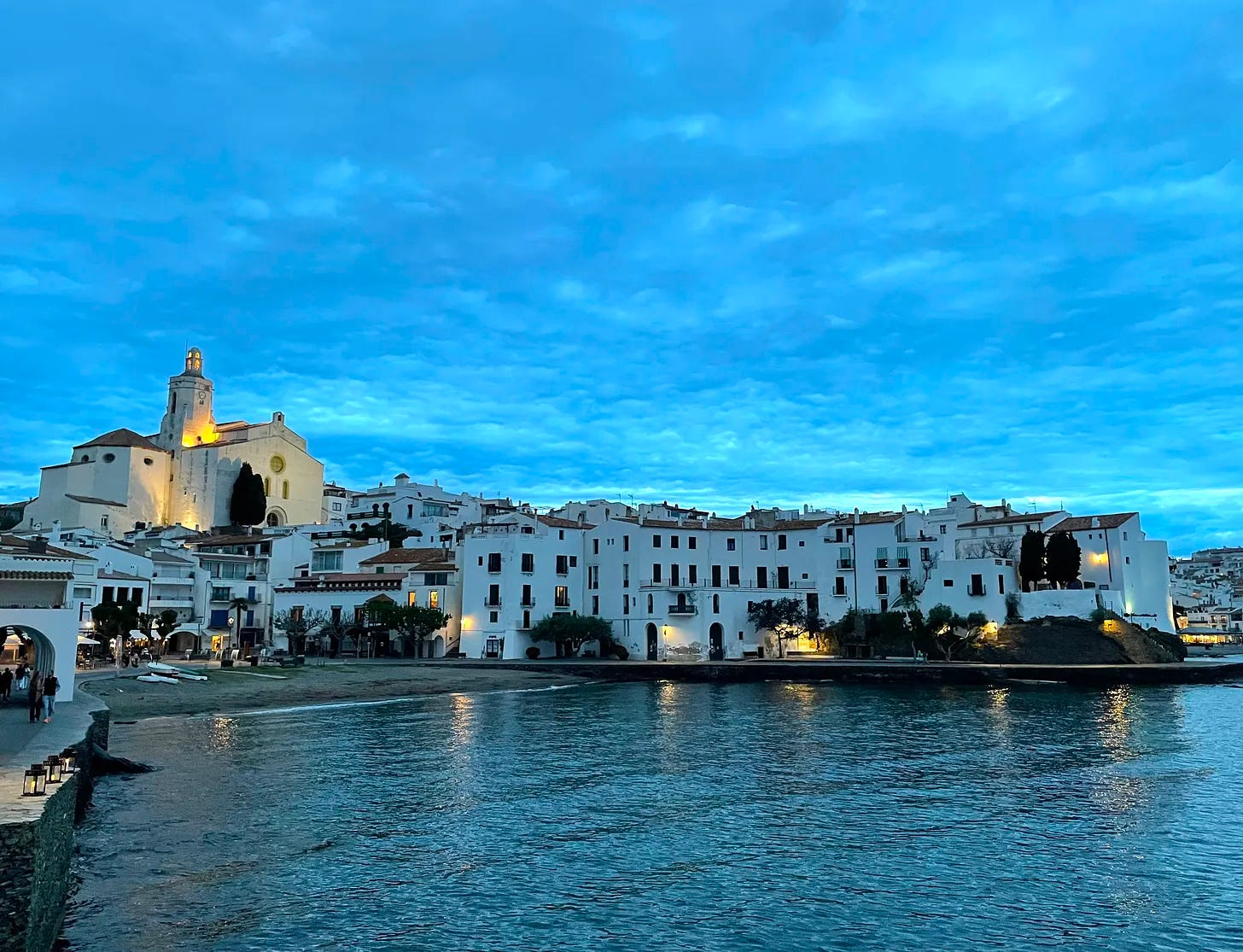

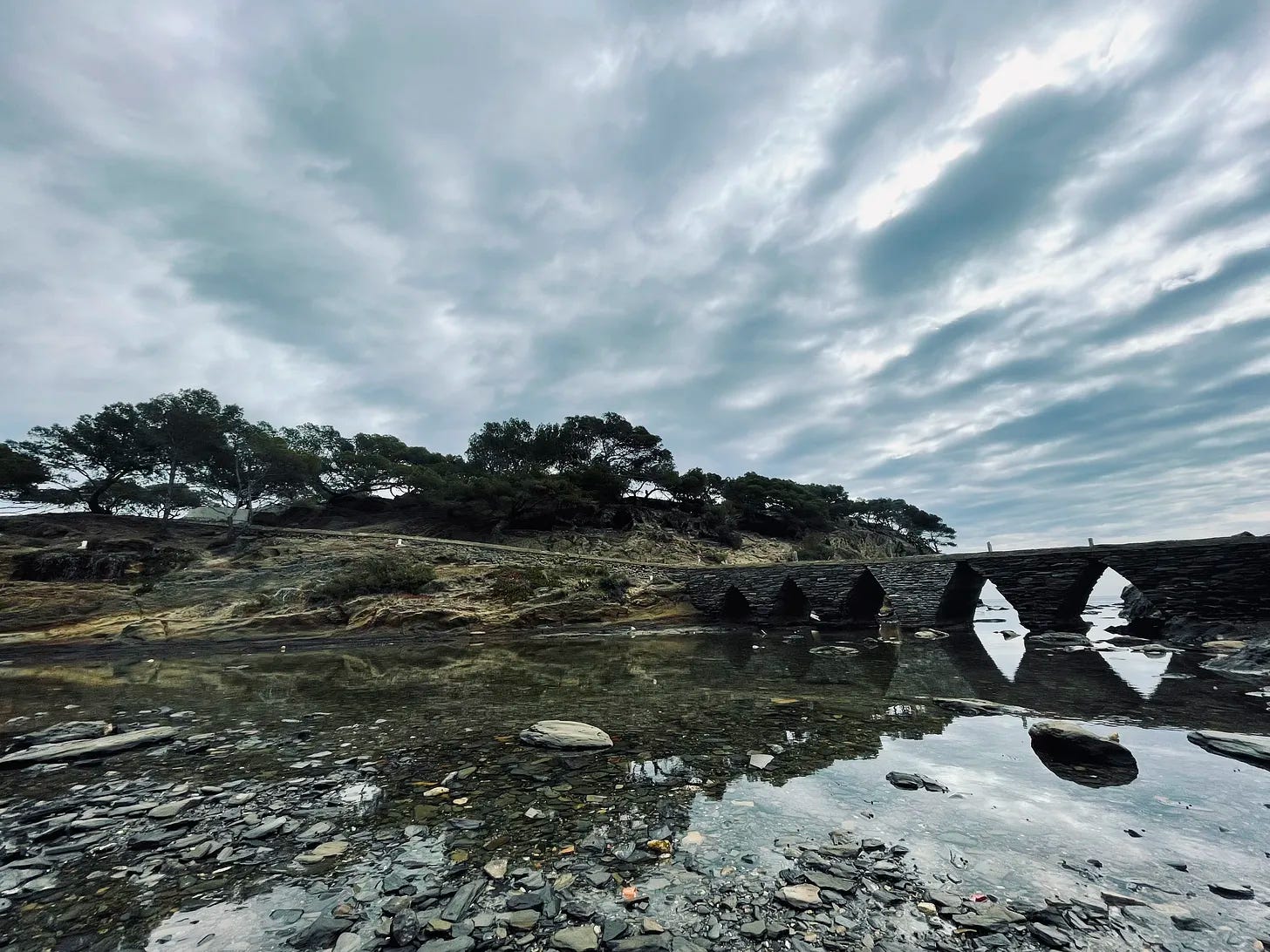
In Cadaques, I wasn’t greeted in Catalan or Spanish but with “Bonjour” or “Bonsoir.” Around 70% of what I heard on the streets was French, and yes, that’s because of the tourism I came prepared for, but Cadaques was not as I expected.
Unlike most of Spain and Catalonia’s coast destroyed by soulless high-rises, construction corruption, and greed, the Cadaques coast remains unobstructed and free to all.
I thought Cadaques would be chic and superficial, but its authenticity and unique architecture drip from every corner as you walk down the narrow stone streets winding through buildings with whitewashed walls and blue doors.
With the lighting and weather that change the contrast of every building and reveal new stories, it’s easy to understand why the old, serene fishermen town attracted artists such as Pablo Picasso, Joan Miró, Marcel Duchamp, Richard Hamilton, and Salvador Dalí.
Montserrat
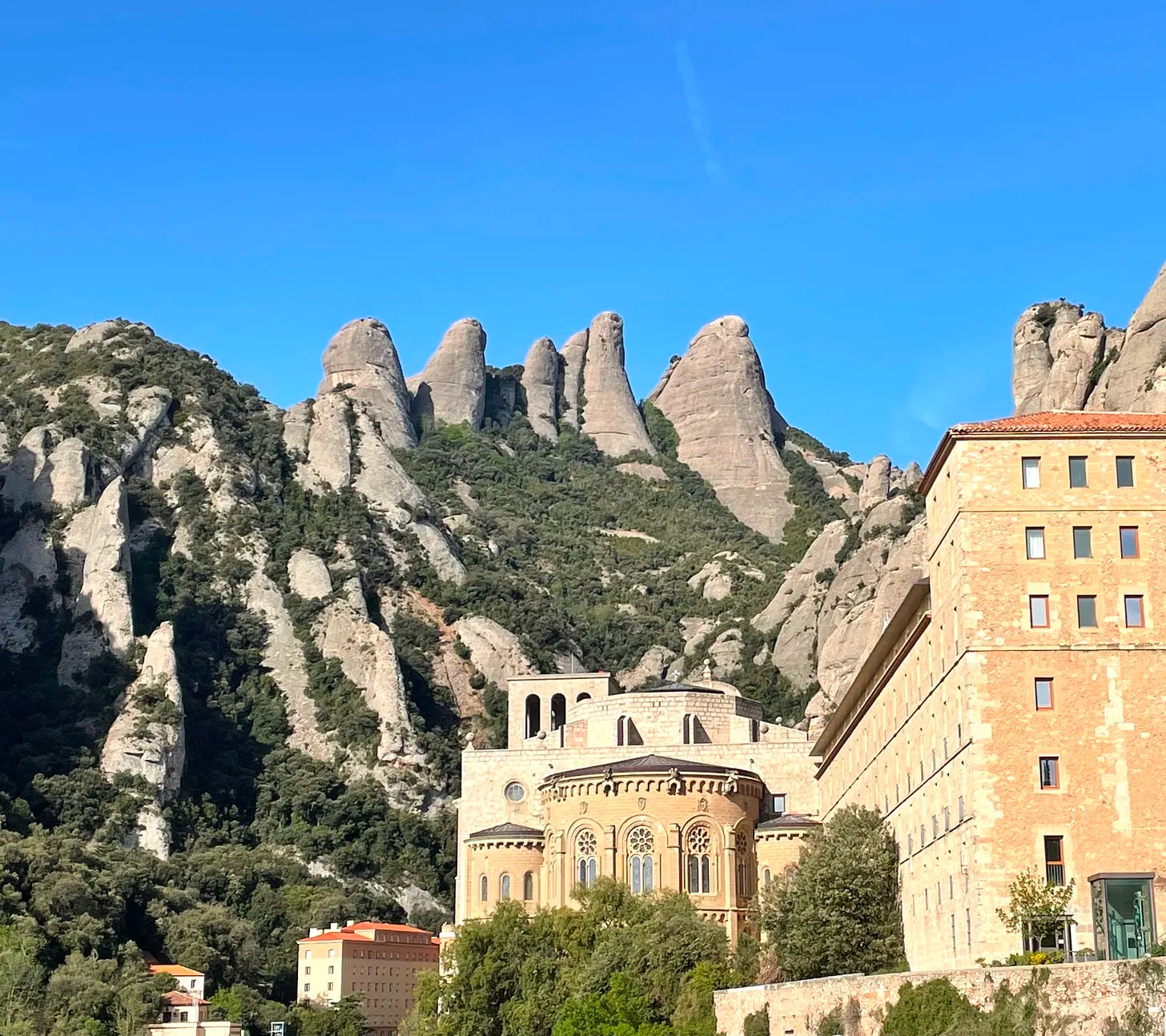
While Montserrat holds special significance for Catalonia, its impact on Spain’s culture, spirituality, and historical protection cannot be overlooked. It represents a shared heritage and serves as a cultural touchstone for people throughout Spain.
The origins of Montserrat trace back to the 9th century when a small Romanesque chapel was established atop the jagged mountain range, but it wasn’t until the 11th century that a Benedictine monastery was founded at Montserrat, and it became an important pilgrimage site.
During the Catalan Renaissance in the 19th century, the mountain served as a gathering place for artists, intellectuals, and activists seeking to revive and celebrate Catalan traditions, but it was also a symbol of unity.
Its cultural and religious significance transcends regional boundaries, drawing people together from different parts of Spain.
Montserrat continues to be a cherished destination, blending spirituality, natural splendour, and cultural heritage.
Enough travel writing. It’s time to get fired up, triggered, political, passionate, or whatever you want to call it.
What’s my stance?
If you read carefully, you already know.
I agree with those standing up for the political prisoners. I agree with those who refuse to speak Spanish with tourists (even though that never happened to me). I agree that Franco was a piece of shit and that people should separate themselves from his legacy as much as possible. And most importantly, I agree the Catalonian bread and dessert-making capabilities are clearly not Spanish.
But I disagree with separatists. They say outsiders shouldn’t speak to these sensitive topics, but screw that. We’re not subject to the same reference group effect.
I’m not only an outsider looking in but a proud resident of Spain who wouldn’t want to call this country home without Catalonia in it.
Spain wouldn’t be Spain without Catalonia, and Catalonia wouldn’t be Catalonia without Spain. If Catalonia wants to separate because of Franco’s legacy, Catalonia will become something he wanted Spain to be—a less diverse country.
I love that people from Catalonia (and most of Northern Spain) don’t speak over one another, and their volume is several decimals lower than the Spaniards I’m used to in Valencia. However, I also love the undeniable fact that people in the Valencia region can party harder and better. Palante como los de Alicante!
I’m proud of the region I live in, and I’ll be the first to say that Catalonians should leave the paella and arroz making to Valencianos. I’ll also be the first to say that Valencianos should leave all the baking and dessert-making to the Catalonians.
But that’s me joking around. What we really should do is learn from each other and stick together.
And as much as some Catalonians will hate hearing this, they’re so Spanish. They put olive oil on everything, eat fish as though the sea’s still full of ‘em, and smear tomatoes on their bread for breakfast.
Many stores close during siesta hours, people from the Canary Islands will call them peninsulares, Catholicism runs deep, they love holidays and Semana Santa, they eat 12 grapes at the stroke of midnight on New Year’s Eve, and they put napkins under food instead of under cutlery.
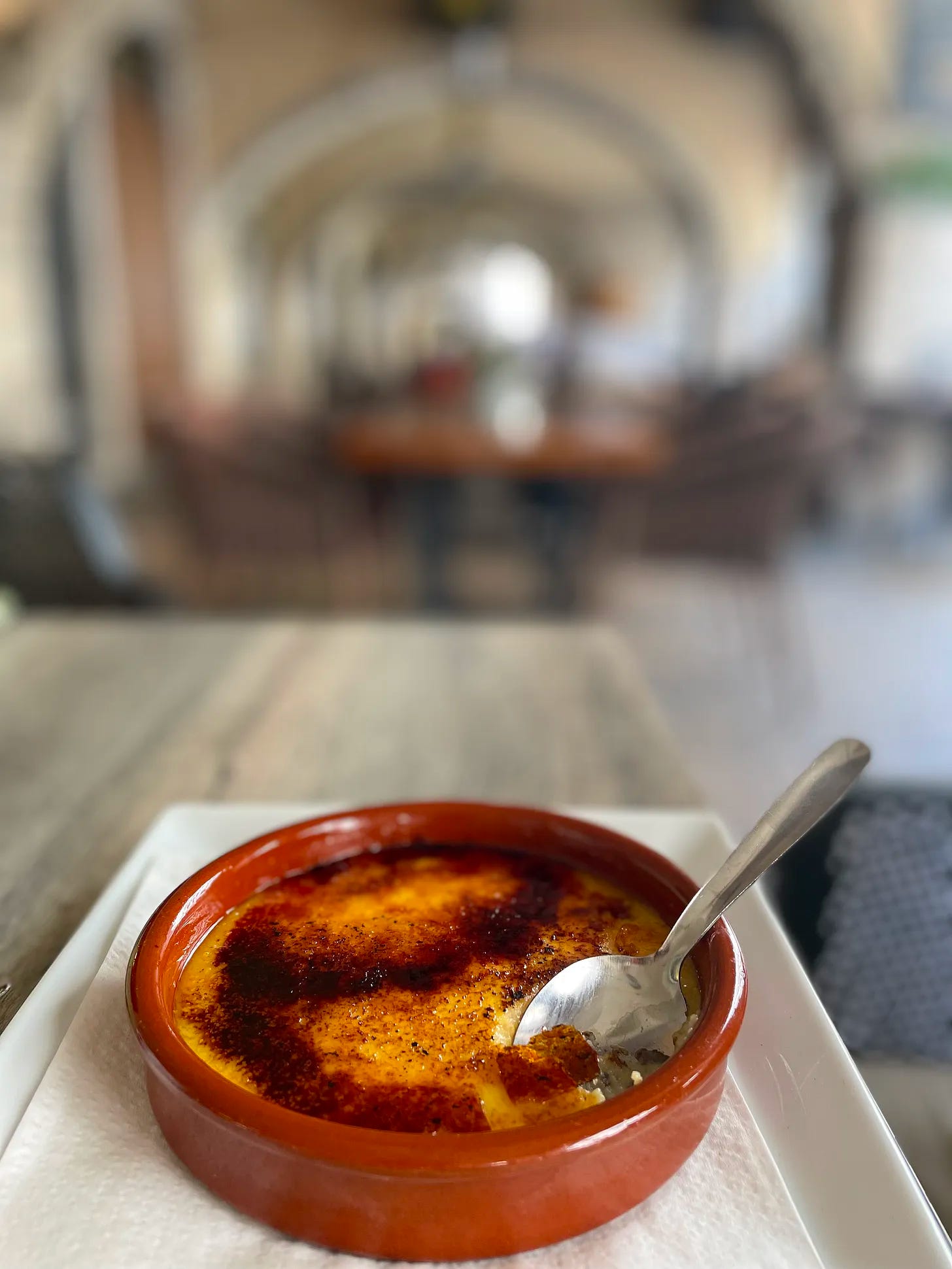
If you believe in research and writing that break down borders, foster cross-cultural understanding, and inspire people to live unbound, consider becoming a paid subscriber to Born Without Borders.
All my work is published on Ghost, a decentralized, non-profit, and carbon-neutral platform—free from VC funding and the grip of technofeudal lords.
I don’t use algorithms to hijack your attention.
My work can only exist if you share and support it.
- Become a Paid Member: Get access to all exclusive content and potentially included access to certain courses/workshops and directly support this work for just $5/ month or $50 / year.
- Become a Founding Member: For those who want to make sure I stay off the platforms causing mental illness, polarization, and a technofeudal shit show. Your deeper support makes all the difference for $30/ month or $300 / year.
Need Specialized Coaching?
- Unlock Your Authentic Voice (Across Cultures & Systems): If you're a multilingual professional or "cultural inbetweener" who feels unseen or misread, let's refine your English for nuance, confidence, and true self-expression.
Affiliate Links for Global Citizens
- Home Exchange: Trade homes, not hotel bills. Live like a local anywhere in the world.
- Wise: Send money across borders without losing your mind (or half your paycheck in fees).
- Preply: Make a living teaching people worldwide.
- Flatio: A more ethical version of Airbnb.

Member discussion